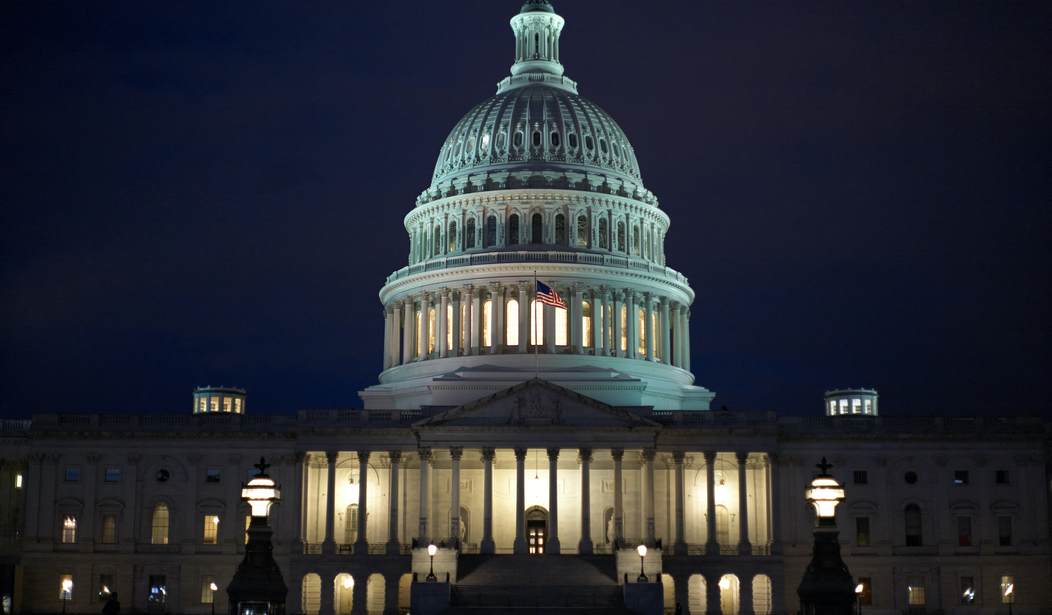Democratic lawmakers are touting a component of their budget bill that would help small business. And indeed, some entrepreneurs will be happy to learn about the $25 billion proposal, which would provide small enterprises with new financing, training, and help with federal contracts.
But it's misleading of legislators to suggest that their massive spending package is small-business-friendly. First, on the tax increase front, sapping the capital of the private sector as the economy works hard to rebound from Covid-19 is not a good idea. Small business owners oppose these tax increases. In addition, they are being quiet about other measures that would impact small businesses, such as a provision that would decimate hundreds of biotech startups -- cutting their revenues and even forcing some to close their doors.
Democrats are still working to include a provision in the spending bill that would impose price controls on drugs -- either H.R. 3, the version championed by House Speaker Nancy Pelosi and party progressives, or a similar proposal.
H.R. 3 would empower the federal government to dictate what Medicare pays biopharmaceutical companies for their products -- and then extend those prices to the entire marketplace. This is supposed to save the federal government money, and thereby help finance the many other programs under the spending bill, which is going to cost taxpayers trillions of dollars.
But that's not the full picture. Nearly two decades ago, bipartisan legislation established Medicare's Part D, through which competing private insurers cover outpatient prescription drugs for seniors. To promote a fair and healthy marketplace, the legislation included a non-interference clause, which barred the government from getting involved in price negotiations.
Recommended
H.R. 3 would do away with that non-interference clause, suddenly allowing the government to dictate price. The impact on business would be enormous. An analysis by the Congressional Budget Office found that if passed, the proposal would "immediately" lower "current and expected future revenues" for biopharmaceutical companies, with "broad effects" on the drug market. The healthcare consultancy Avelere did its own analysis, and found that the industry as a whole could face a loss of more than $1 trillion in revenue over 10 years.
As a percentage of revenue, drug makers spend more on research and development than other industries -- an average of 23 percent across the sector. Facing price controls, though, drug companies would be forced to cut spending.
Large pharmaceutical companies might be able to weather the storm, albeit with massive reductions in research and development. But many small biotech firms would not survive repeal of the non-interference clause. These younger startups rely on the chance of revenue from future drug sales to attract investment, get off the ground, and stay afloat. According to a new white paper from a coalition of life-science funders, investment into rare diseases and specialty medicines would drop to nearly zero if price-control legislation passed.
If these biotech start-ups are no longer able to innovate, we could lose cures for cancer, Alzheimer's, and countless other diseases. And on top of this blow to patients, the economic impact would be devastating. According to research from earlier this year, implementing price controls in the United States would stamp out nearly 200,000 jobs in the biopharmaceutical industry, and approximately 1 million overall.
Thriving biotech hubs from coast to coast would suffer, with knock-on economic effects. For instance, each new biotech job in the Boston area creates five additional indirect jobs, according to a white paper from the Massachusetts Biotechnology Council. New jobs in other industries, like manufacturing and food service, create many fewer indirect positions. In other words, layoffs and closures in biotech will have an outsized effect.
Democrats may talk the talk on small business, and their proposed fund to help entrepreneurs could help some of these businesses. But if their spending bill also slashes income to a whole industry with government price controls, this could wipe out many of our nation’s most innovative small companies. If that happens, not only will small businesses pay a steep price, but our nation’s health care consumers will too.
Karen Kerrigan is president and CEO of the Small Business & Entrepreneurship Council.

























Join the conversation as a VIP Member